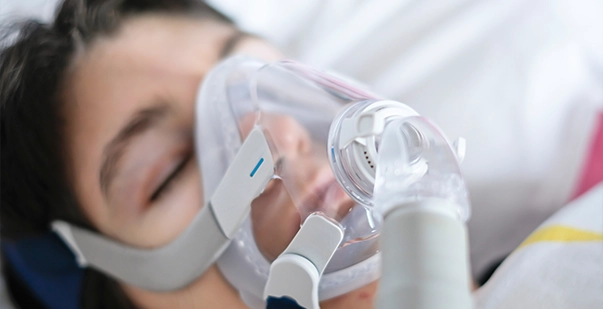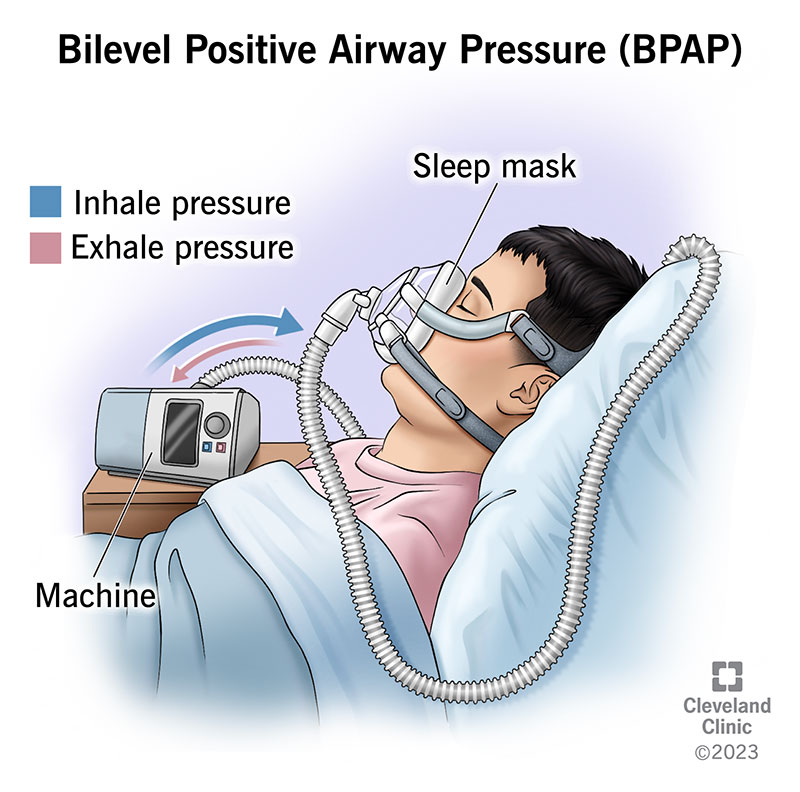How to Discover the most effective BiPAP Rental Providers Online
How to Discover the most effective BiPAP Rental Providers Online
Blog Article
Bipap vs. CPAP: Which Is the Best for Your Rest Condition?
When navigating the complexities of rest disorders, the option between BiPAP and CPAP treatment is a critical factor to consider. Each modality supplies one-of-a-kind advantages tailored to certain problems, yet the choice depends upon private patient needs and comfort degrees. While CPAP gives a consistent airflow appropriate for obstructive sleep apnea, BiPAP's dual stress settings may enhance comfort for those with even more intricate respiratory concerns. Comprehending these differences can significantly influence treatment efficiency, leaving one to contemplate which choice really straightens with their wellness needs and way of life.
Comprehending Rest Disorders
Sleep problems encompass a series of conditions that disrupt typical sleep patterns, influencing both the quality and period of rest. These problems can manifest in different kinds, including insomnia, sleep apnea, narcolepsy, troubled leg syndrome, and parasomnias. Each problem offers distinct obstacles, frequently bring about significant daytime tiredness, cognitive problems, and emotional disturbances.
Sleep problems is characterized by problem falling or remaining asleep, while rest apnea involves duplicated disturbances in breathing during sleep, commonly leading to fragmented rest. Narcolepsy, on the various other hand, is noted by too much daytime sleepiness and sudden sleep assaults. Troubled leg disorder creates uncomfortable feelings in the legs, triggering an irrepressible impulse to move them, which can also impede the capability to drop asleep.
The influence of rest disorders prolongs beyond private health and wellness, affecting total performance, partnerships, and lifestyle. Recognizing the certain nature of each condition is essential for efficient diagnosis and treatment. As sleep wellness comes to be increasingly identified as a vital component of total health, addressing these problems is essential for boosting both rest top quality and everyday functioning.
How CPAP Works
Continual Favorable Air Passage Pressure (CPAP) therapy is regularly used as a main treatment for obstructive sleep apnea (OSA) The device of CPAP includes using a device that delivers a constant stream of air via a mask used during sleep. This air movement keeps favorable pressure in the respiratory tract, protecting against the collapse or blockage of the throat that can occur throughout rest.
When a client breathes in, the CPAP maker supplies a continuous circulation of air, making sure that the airway stays open - BiPAP Rental. This not just reduces the symptoms of OSA, such as snoring and disrupted sleep patterns, but additionally lowers the connected health threats, including cardio complications and daytime tiredness
The pressure setups on a CPAP machine can be tailored to meet private person needs, frequently identified via a sleep study. People normally undertake titration researches to locate the optimal pressure level for their distinct condition. Regular follow-up and adjustments might be required to make sure performance and convenience. On the whole, CPAP therapy has been revealed to considerably boost the quality of sleep and total health for individuals struggling with obstructive sleep apnea.
Just How BiPAP Functions
BiPAP, or Bilevel Favorable Respiratory Tract Pressure, is a specialized form of non-invasive ventilation that is particularly helpful for people with problems such as intricate rest apnea or breathing disorders. Unlike CPAP, which provides a constant stream of air at a single stress, BiPAP offers 2 distinct stress setups: a higher inspiratory stress for inhalation and a reduced expiratory pressure for exhalation. This dual-pressure method enables for much easier breathing, lowering the initiative needed during exhalation.
The device operates through a mask fitted over the nose or mouth, connected to an equipment that creates air stress. When the individual breathes in, next the device delivers the higher pressure to assist with airflow, ensuring that the respiratory tract continues to be open. Upon exhalation, the maker immediately decreases the pressure, making it extra comfy for the client to breathe out.

Trick Differences Between BiPAP and CPAP

On the other hand, BiPAP (Bilevel Favorable Air passage Stress) offers two various stress settings: one for breathing and a reduced one for exhalation. This dual stress system allows for more comfy breathing, particularly for people who have a hard time with breathing out versus a continuous pressure. BiPAP is usually recommended for clients with complicated rest apnea, persistent obstructive pulmonary disease (COPD), or those who need added assistance throughout rest.
In addition, the complexity of BiPAP tools typically leads to a greater cost and requires much more cautious titration than CPAP. BiPAP Rental. Comprehending these vital distinctions can assist in identifying which tool might be more suitable for specific rest problems, establishing the foundation for enlightened therapy choices
Selecting the Right Therapy
The choice in between BiPAP and CPAP therapy primarily pivots on the particular qualities of the sleep problem, the client's overall wellness, and their comfort with the device. CPAP, which supplies a constant stream of air, is commonly suggested for obstructive sleep apnea (OSA)
Conversely, BiPAP gives two degrees of pressure: one for breathing and a lower one for exhalation. This dual stress system is advantageous for patients with intricate rest apnea or those who experience trouble breathing out against a continual pressure. In addition, BiPAP is commonly advised for individuals with breathing conditions, such as chronic obstructive lung disease (COPD), where differing pressure settings can boost comfort and conformity.
Ultimately, a detailed assessment by a rest specialist, including a rest study, can assist establish which therapy lines up ideal with the client's requirements. Factors such as comfort, convenience of usage, and particular clinical problems should likewise be taken into account to optimize treatment results.
Final Thought
In recap, both BiPAP and CPAP offer distinct purposes in the administration of sleep conditions. CPAP is efficient for obstructive rest apnea with regular air movement, while BiPAP supplies double pressure settings that enhance comfort for those with intricate sleep apnea or respiratory issues. The option between these therapies ought to be directed by individual requirements and conditions, necessitating a comprehensive assessment by a sleep professional to make sure ideal treatment outcomes and improved top quality of sleep.

In general, CPAP treatment has actually great site been revealed to significantly boost the high quality of rest and overall health and wellness for people enduring from obstructive rest apnea.
BiPAP is frequently suggested for individuals with intricate rest apnea, persistent obstructive lung disease (COPD), or those who require extra support during sleep.
CPAP is effective for obstructive sleep apnea with constant air flow, while BiPAP uses dual stress setups that enhance comfort for those with complicated sleep apnea or respiratory issues.
Report this page